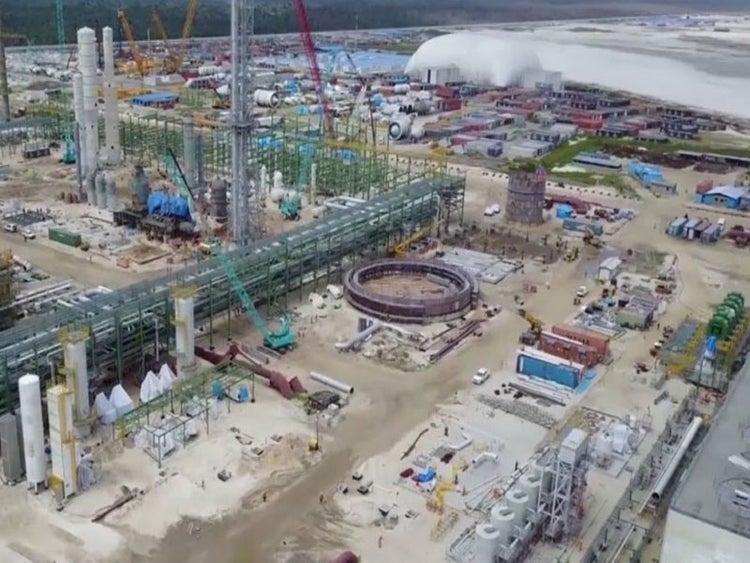By Kenneth Afor
About $500 million will be preserved in the country’s treasury and another $400 million will be coming in as export proceeds when the Dangote Fertiliser Plant, the biggest in the world, commences production.
Also, this will be a major boost in the country’s agriculture sector in which smallholder farmers will spend less in procuring imported fertilisers.
This was said by Devakumar Edwin, group executive director, strategy, portfolio development and capital projects, Dangote Industries Limited in a statement.
The $2 billion and 500 hectares plant classified as the biggest project in the global fertiliser industry according to Edwin, when in operation will be producing three million tonnes of granulated urea fertiliser annually.
He added that all components such as the central control room, ammonia and urea bulk Storage, cooling tower, power generator plant, granulation plant, have been completed and are going through pre-testing.
“The supply of fertiliser from the plant will be enough for the Nigerian market and neighbouring countries.
“I am happy that by the time our plant is fully commissioned, the country will become self-sufficient in fertilizer production and even have the capacity to export the products to other African countries. Right now, farmers are forced to utilise whatever fertilizer that is available as they have no choice; but we need to know that the fertilizer that will work in one state may not be suitable in another state, as they may not have the same soil type and composition. The same fertilizer you use for sorghum may not be the fertilizer you will use for sugar cane,” he said.
The plant was constructed by Saipem of Italy while Tata Consulting Engineers, India monitored the entirety of the construction plant.
According to Edwin, about 70 million standard cubic feet of gas per day is being supplied by Nigerian Gas Company and Chevron Nigeria Limited (CNL) to continuously power the plant for effective production of fertiliser.
Edwin believes that when the plant is fully operational, food production in the country will increase to meet the growing population and to achieve this, fertiliser which is farmers’ main source of getting high yields of their farm produce will be in abundance to meet the required consumption figure of about five million tonnes in the next five to seven years.
“By 2020, the Nigerian population is projected to increase to about 207 million, which would lead to increased food production. Estimates point out that around five million tonnes of fertilizers are required per year in Nigeria in the next five to seven years bifurcated into 3.5 million tonnes of urea and 1.5 million tonnes of Nitrogen, Phosphorus and Calcium (NPK) while current production levels in Nigeria are at 1.6 million tonnes by 2019,” he said.
Over the years, successive governments have spent billions of naira importing fertiliser in sufficient quantity but that has not translated to improved and high yields of farm produce.
With the commencement of the production of fertiliser in the country, it will eliminate the bottle-necks farmers in the rural communities go through in procuring affordable fertilisers.









